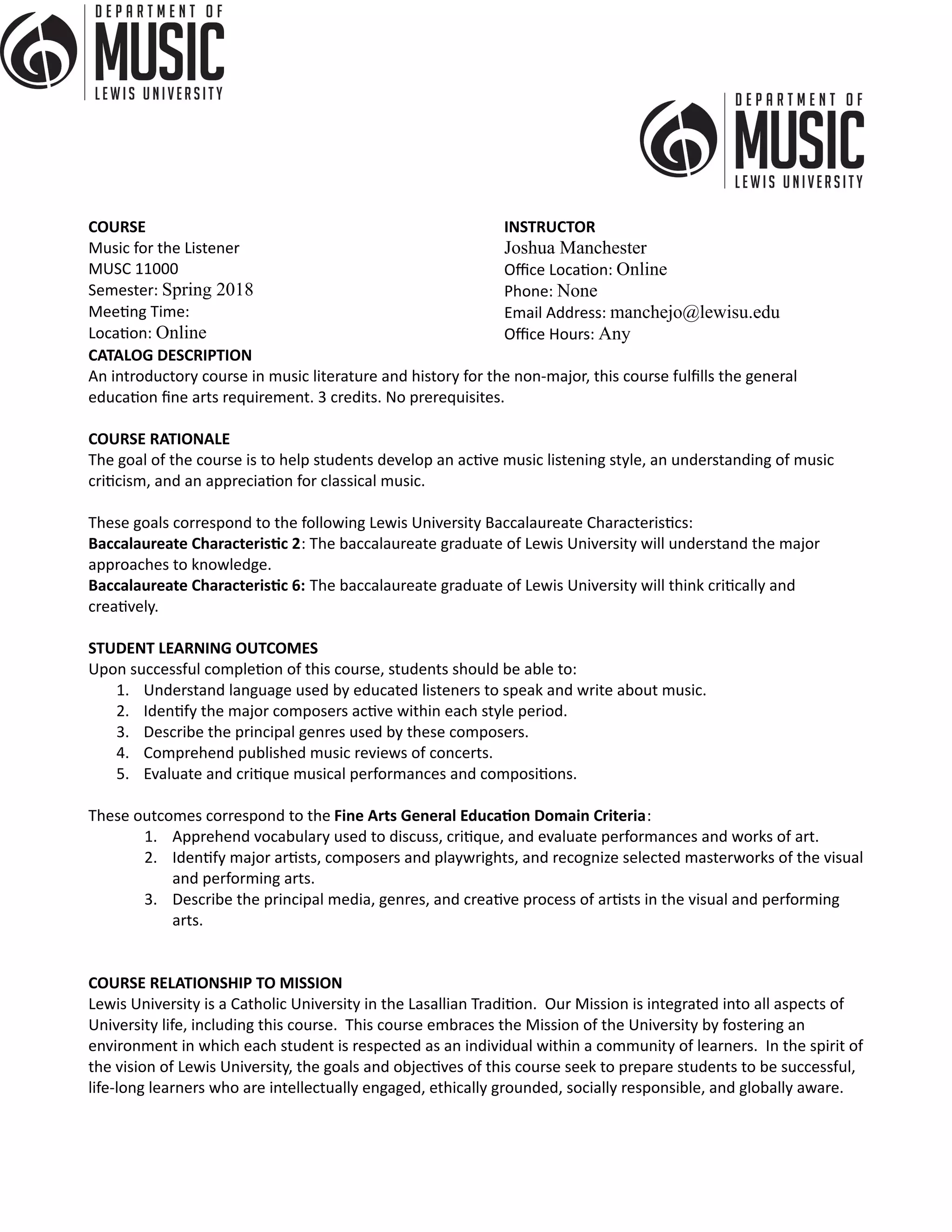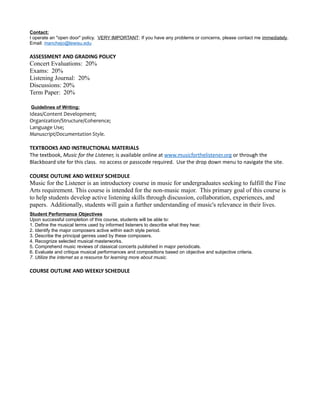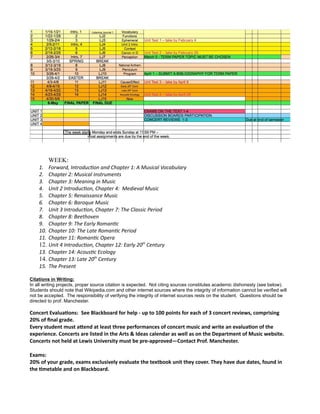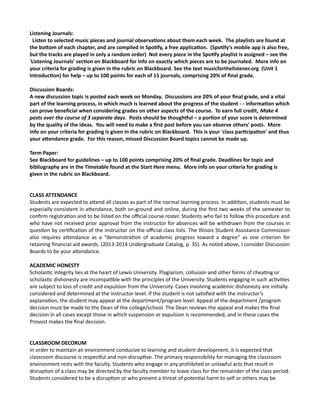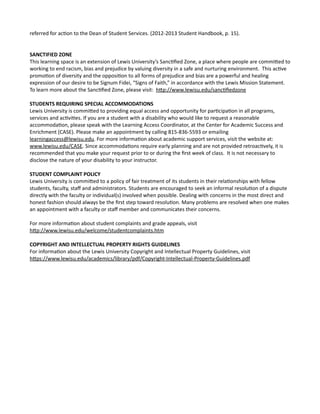This document provides information about an online music appreciation course titled "Music for the Listener". The course is intended for non-music majors to fulfill a fine arts requirement. Key details include the instructor's contact information, a description of student learning outcomes, an outline of course content and assignments, and policies regarding attendance, academic honesty, and accommodations. The primary goal is to help students develop active listening skills and gain an understanding and appreciation of classical music through assignments like listening journals, discussions, exams, and a term paper.
